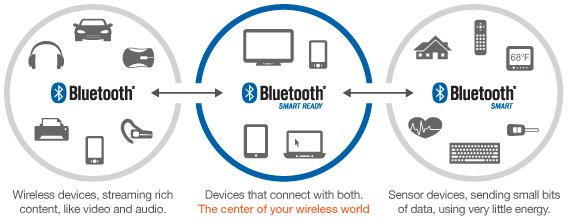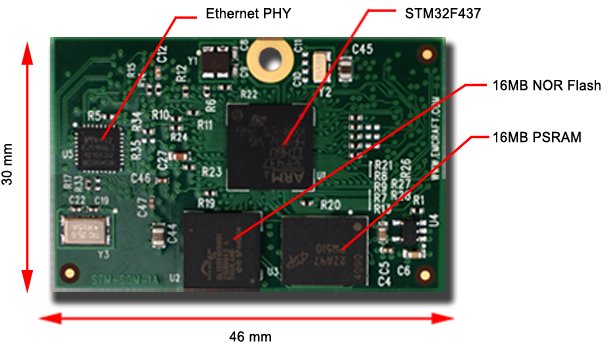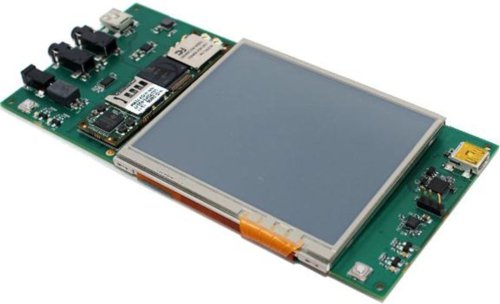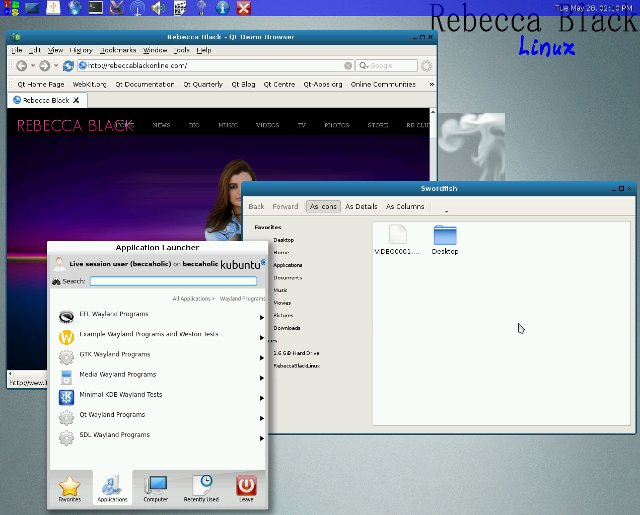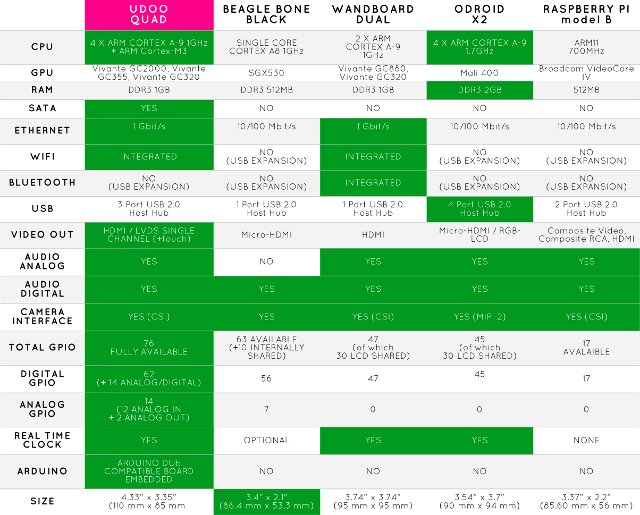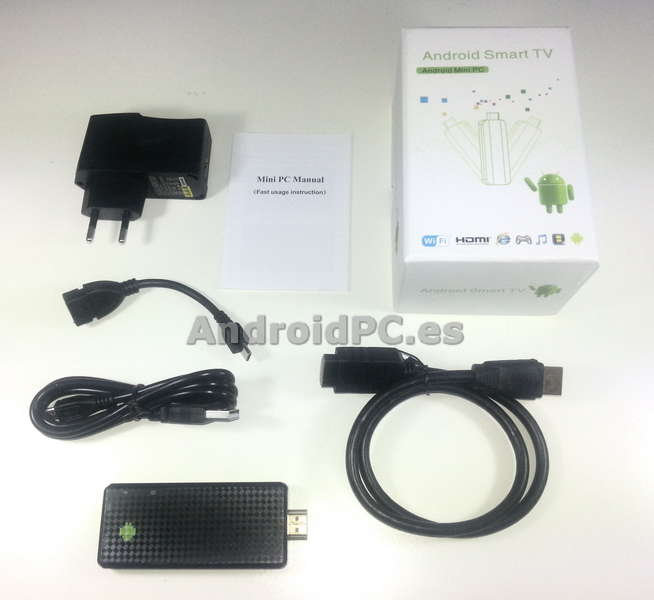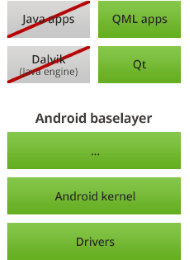I’ve seen more and more Bluetooth 4.0 LE devices in the last few months including RFDuino, Wimoto Motes, TI SensorTag, and Scadanu Scout, so I thought it would be good to write a bit about Bluetooth. First, I’ll write about the different version of Bluetooth, since I was still confused with the practical implications between the versions, and then I’ll show some development kits and software resources to play around and/or develop Bluetooth 4.0 LE applications both on devices and hosts. Bluetooth Versions Bluetooth v1.0 and v1.0B The Bluetooth 1.0 Specification was released in 1999, and according to an entry in Wikipedia, 1.0 and 1.0B devices had many issues, mainly interoperability issues. You won’t find any Bluetooth 1.0 device today. Bluetooth v1.1 Bluetooth v1.1 was ratified as IEEE Standard 802.15.1-2002 in 2002. It fixed many issues found in the previous specifications, added the option to use non-encrypted channels, as well […]
Emcraft Systems STM32F4 SoM and Starter Kit Run uCLinux From On-Chip Flash
Emcraft has recently announced a new system-on-module based on STMicro STM32F437 Cortex M4 micro-controller, as well as a starter kit based on the module that can run uCLinux directly from STM32F437’s 2MB on-chip flash, allowing a faster boot time, and AFAIK, this is the only Linux-ready STM32 platform available on the market. Here are the specifications of Emcraft Systems SOM-STM32F4: MCU – STMicro STM32F437 Cortex M4 @ 168 MHz with 256KB RAM and 2MB flash External Memory – 16MB PSRAM External Storage – 16MB NOR Flash Ethernet PHY (Optional) Connectors – 2x SoM Connectors with access to I/Os: USB, Ethernet, I2C, SPI, UART, LCD I/F, ADC, DAC, GPIO… Dimensions – 30 mm x 46 mm To speed-up development and for evaluation, the company also provides a starter kit composed of the STM32F4 SoM, and a baseboard (SOM-BSB-EXT) with the following main features: USB interface using USB-UART bridge connected to UART […]
Gumstix Alto35 Customizable Touchscreen Board
A few months ago, Gumstix introduced Geppeto, a web platform that allows you to design and order your own baseboard for Gumstix Overo systems-on-module within minutes. The company has just announced Alto35, an expansion board built entirely with Geppetto. The Alto35 replaces Palo35 Overo-series expansion board with the same features, but adding the possibility of customizing the board via Geppetto. Alto34 expansions board features the following: 3.5″ LCD resistive touch screen Stereo audio in/out jacks 3D accelerometer (STMicro LIS33DE) RC servo USB – 2x USB mini-B ports, including console port (FT232RQ USB UART) LEDs in 4 different colors, 2 tactile switches. 2×70-pin AVX Headers compatible with Overo COMs. Power – 3.5V-5V All Overo computers-on-module are compatible with Alto35 board, so you can just use existing software solutions such as Linaro Ubuntu, Robot Operating System, and the Yocto Project. Alto35 is available for $89 including the display (not the Overo module), […]
Linaro 13.05 Release With Linux Kernel 3.10, Android 4.2.2, and Ubuntu Raring Ringtail
Linaro 13.05 has just been released with Linux Kernel 3.10-rc2 and Android 4.2.2. This is the first release with Ubuntu 13.04 (Raring Ringtail) images. There’s also Linux Linaro Stable (LSK) preview based on kernel 3.9.4. BeagleBone Black support has been added and preliminary hwpack and images are available, an Android Arndale image with virtual framebuffer is also available. You can now get a desktop environment (XFCE) on Aarch64 / ARMv8. Hardware packs with Real-time Linux kernel (PREEMPT_RT) can be downloaded for Pandaboard and Arndale. More work has gone into Aarch64, big.LITTLE HMP, and ARM virtualization (KVM). Finally an UEFI is available not only for Vexpress boards, but also Samsung Origen and Arndale boards, as well as Texas Instruments Pandabord and Beagleboard. Here are the highlights of this release: LAVA First prototype production run of LAVA Lmp completed, tested functional. Beaglebone Black is now running in LAVA. TC2s is now running […]
RebeccaBlackOS is a Linux Distribution Showcasing Wayland
nerdopolis, a developer and a Rebecca Black fan, has been maintaining a Linux distribution called RebeccaBlackOS that uses Wayland’s reference compositor Weston as the default for handling its graphical user interface, and automatically start “Friday” song as it boots. This distribution actually supports both Wayland and X, as even though QT, GTK, EFL (Enlightenment Foundation Libraries), Clutter, and SDL (Simple DirectMedia Layer) have all been compiled to support Wayland, many apps don’t work with Wayland, so Xwayland provides a way to run many, but not all, X apps in Wayland. You can try the latest 1.8 GB ISO image (24 May 2013), which is based on 32-bit Kubuntu 13.04, by transferring it to a USB flash drive via Unetbootin, or by using the ISO directly in VirtualBox (it will then use the framebuffer). I planned to try it before writing this post, by the “18 hours, 10 minutes remaining” message […]
UDOO QUAD vs BeagleBone Black vs Wandboard Dual vs ODROID-X2 vs Raspberry Pi
UDOO QUAD is a development board featuring both Freescale i.MX 6Quad and an Atmel SAM3 Cortex M3 MCU, that’s currently having a very successful campaign on Kickstarter, as the total amount pledged is now close to $500,000 US. UDOO decided to put a comparison table against four other ARM Linux boards they consider their main competitors: the BeagleBone Black for its numerous I/O options, Wandboard Dual, also a Freescale i.MX6 powered board, the ODROID X2 for its powerful Exynos 4412 processor, and Raspberry Pi model B which is ubiquitous. The Cubieboard board would also have been an interesting addition, but they did not include it. As you would have guessed the green parts in the tablet shows the winner for each features according to UDOO team. These 5 boards vary greatly in terms of price, and since this is not included in the table above, I’ll mention the price of […]
Kimdecent QC802 Review
QC802 is one of the cheapest RK3188 mini PCs available on the market, as it sells for just $76 on Kimdecent aliexpress store ($73 after you get an Aliexpress coupon). AndroidPC.es got one sample, and posted a review in Spanish. I’ll post a summary in English of this review, but first let’s have quick look at the specs: SoC – Rockchip RK3188 quad core Cortex A9 @ 1.6 Ghz + Mali-400MP4 GPU System Memory – 2GB DDR3 Storage – 8 GB internal flash + micro SD slot (up to 32GB) Connectivity – Wi-Fi 802.11 b/g/n + Bluetooth 2.1 Video Output – HDMI (male) USB – 1x USB Host 2.0, 2x micro USB ports including one for power, one USB Host (or OTG?) So the specs are comparable to other devices. QC802 Unboxing Pictures The package contains the device itself, a 5V/2Apower supply, an HDMI cable, a micro USB to USB […]
Digia Brings Qt to Embedded Android Devices with Boot to Qt
Digia has recently announced Boot to Qt Technology Preview, a commercial offering that provides a solution for the creation of user interfaces on embedded systems. For the first version, they stripped out Android of Java, or other unnecessary parts (Zygote, SurfaceFlinger), added Qt/QML, and tested it on on ARM and x86 hardware. Boot to Qt includes the following main features: A light-weight UI stack for embedded Linux, based on the Qt Framework – Boot to Qt is built on an Android kernel/baselayer and offers an elegant means of developing beautiful and performant embedded devices. Ready-made images – We have images for several different devices which include the Boot to Qt software stack, making it possible to get up and running with minimal effort from day one. Full Qt Creator Integration – One-click deploy and run on hardware and a fully featured development environment. Simulator – A VirtualBox based simulator which allows device development […]


